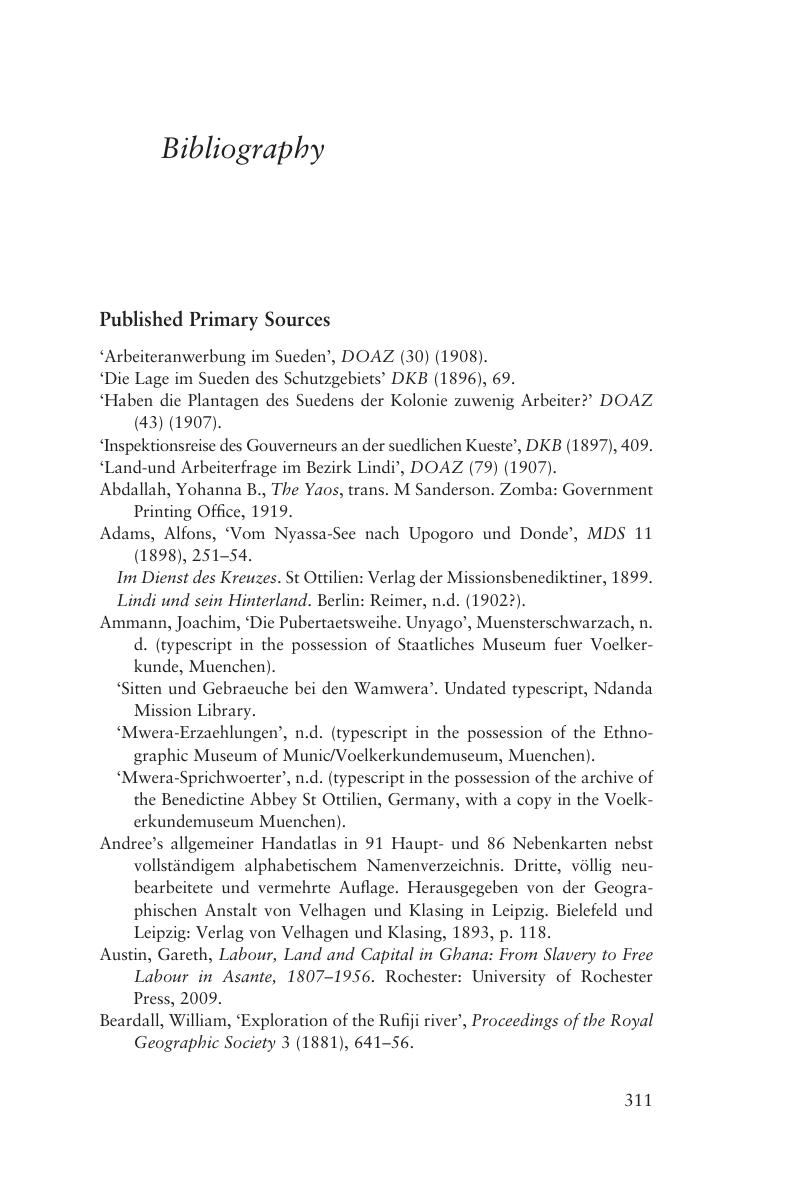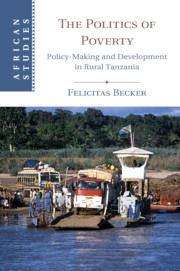Book contents
- The Politics of Poverty
- African Studies Series
- The Politics of Poverty
- Copyright page
- Contents
- Acknowledgements
- Map
- Introduction
- 1 The End of Slavery, Famine, and Food Aid in Tunduru
- 2 Changing Configurations of Poverty in the Colonial Southeast and the Myth of Communalism
- 3 The Struggle to Trade
- 4 Independence and the Rhetoric of Feasibility
- 5 Villagisation and the Pursuit of Market Access
- 6 The Politics of Development in the Era of Liberalisation
- 7 Performing and Pursuing Development in Kineng’ene
- Conclusion
- Bibliography
- Index
- African Studies Series
- References
Bibliography
Published online by Cambridge University Press: 17 June 2019
- The Politics of Poverty
- African Studies Series
- The Politics of Poverty
- Copyright page
- Contents
- Acknowledgements
- Map
- Introduction
- 1 The End of Slavery, Famine, and Food Aid in Tunduru
- 2 Changing Configurations of Poverty in the Colonial Southeast and the Myth of Communalism
- 3 The Struggle to Trade
- 4 Independence and the Rhetoric of Feasibility
- 5 Villagisation and the Pursuit of Market Access
- 6 The Politics of Development in the Era of Liberalisation
- 7 Performing and Pursuing Development in Kineng’ene
- Conclusion
- Bibliography
- Index
- African Studies Series
- References
Summary

- Type
- Chapter
- Information
- The Politics of PovertyPolicy-Making and Development in Rural Tanzania, pp. 311 - 355Publisher: Cambridge University PressPrint publication year: 2019



